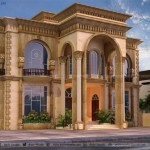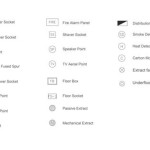Essential Aspects of Small Modular House Plans
Small modular house plans have grown in popularity in recent years as a cost-effective and sustainable way to build a home. These homes are constructed in a factory setting, then transported to the building site and assembled. This process offers several advantages over traditional on-site construction methods.
Affordability
One of the primary advantages of small modular house plans is their affordability. Factory production allows for efficient use of materials and labor, resulting in lower construction costs compared to traditional homes. Additionally, the controlled environment of the factory reduces weather-related delays and cost overruns.
Sustainability
Small modular homes are also more sustainable than their traditional counterparts. The factory setting enables precise construction methods that minimize waste and energy consumption. Furthermore, modular homes are often equipped with energy-efficient features such as solar panels and insulated walls, reducing ongoing energy costs for homeowners.
Customization
Despite being prefabricated, small modular house plans offer a wide range of customization options. Buyers can choose from various floor plans, exterior finishes, and interior layouts to create a home tailored to their specific needs and preferences. Additionally, many manufacturers allow for custom modifications to meet unique requirements.
Quality Control
Factory production ensures a higher level of quality control than on-site construction. Each module is inspected and undergoes rigorous testing before being shipped to the building site. This reduces the risk of construction defects and ensures the home meets the highest standards.
Faster Construction Time
Small modular house plans significantly reduce construction time compared to traditional methods. Since the modules are prefabricated off-site, the on-site assembly process is streamlined and efficient. This can result in a home being ready for occupancy in a matter of weeks or months, rather than traditional construction timelines of several months or years.
Challenges and Considerations
While small modular house plans offer numerous advantages, there are a few challenges and considerations to be aware of:
- Size Limitations: Small modular homes typically have smaller footprints compared to traditional homes.
- Transportation Costs: The cost of transporting modules to the building site can vary depending on the distance and accessibility.
- Foundation Requirements: Modular homes require a level and sturdy foundation, which can add to the overall cost.
Overall, small modular house plans offer a cost-effective, sustainable, and customizable way to build a home. The benefits of affordability, quality control, and faster construction time outweigh the potential challenges for many homeowners. If you are considering building a home, exploring small modular house plans is highly recommended.

Green Design Small House Plans Container

Modular House Plans Modularhomeowners Com

Floor Plans Cvs 3242k1 0 Manufactured And Modular Homes In 2024 Home House Plan With Loft Small

Small Modular Home 805 Sq Ft Kintner Builder Pennsylvania Quality Prefab Contractor Tiny Living

Small Prefab Mini House One Cabins

Modular Homes Floor Plan Model 9561

Modular Home Designs Can Be Made Wider Longer

Modular Floor Plans Sunrise Housing

Technology Green Energy Sustainable House Plans Casas Modulares Prefabricadas Planos De

All Modular Home Floorplans 40 Plans Affinity A Vantem Company








